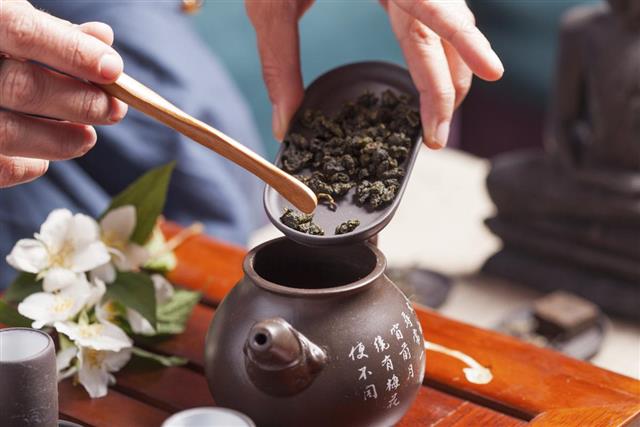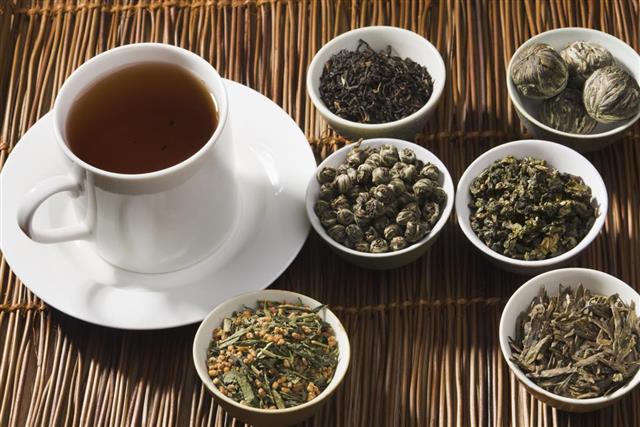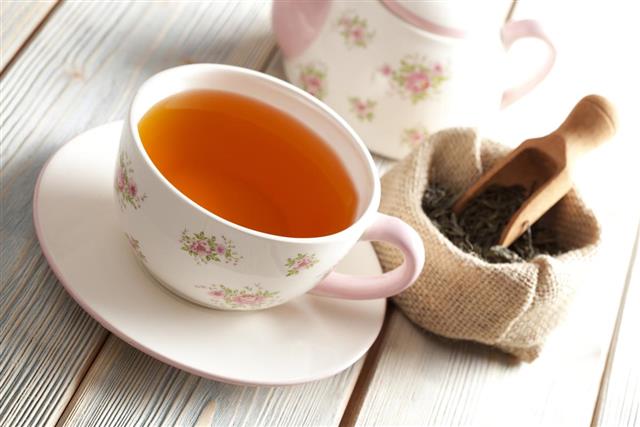
Side effects of oolong tea is a hot topic for discussion nowadays. Health conscious people are searching a lot on the web for its possible negative effects. Here are some of the most significant ones.
Like all other types of tea, Oolong tea is also derived from the tea plant called Camellia sinensis. It undergoes 10% to 70% oxidation to acquire the state in which it is sold. There are a number of health benefits of oolong tea. Some of these health benefits include, reduction in triglycerides, atherosclerosis and cholesterol. Oolong tea and weight loss are often found to be associated with each other. Therefore, consuming this tea in optimum amount will definitely maintain good health and fitness. However, drinking oolong tea in excess or more than required quantity will cause certain side effects.
Major Side Effects of Oolong Tea
Oolong tea consists of small amount of caffeine as compared to coffee and black tea. But excess consumption of oolong tea can cause the following side effects.
▶ Hypokalemia
Hypokalemia is a disorder that is marked by abnormally low concentrations of potassium in serum. It is one of the most common side effects of oolong tea, because excessive consumption of caffeine interferes with the absorption of potassium and eventually results in hypokalemia.
▶ Upset Stomach
Caffeine and tannin present in oolong tea stimulate the production of gastric acid in stomach. It may be a problem for those who are suffering from heartburn and stomach ulcer. Excess of gastric acid may rise up and spill into the esophagus. It causes mild to severe irritation.
▶ Beriberi
Oolong tea interferes in the absorption of vitamin B1 or thiamine. Thus, its over-consumption can lead to deficiency of thiamine in body. Lack of thiamine in body is known as beriberi.
▶ Decreases Effectiveness of Medications
Some substances present in oolong tea are believed to interact with certain medications. Hence its excessive consumption can give you side effects in the form of nil or decreased effectiveness of these medications.
▶ Problems During Pregnancy and Breastfeeding
Though oolong tea contains less amount of caffeine, its excess consumption during pregnancy may cause harm to the fetus and can lead to premature delivery or low birth weight. During breastfeeding, small amount of caffeine can pass through the milk to the baby which may result in irritability and increased bowel movements. Thus, to be on the safer side, pregnant and lactating women should reduce the consumption of caffeine to 200 mg per day.
▶ Kidney Stone
Oolong tea contains oxalates, which are considered to be one of the causative agents of kidney stone. However, studies have shown that very high levels of oxalates are required to produce such negative effects on human body.
▶ Tea Allergy
Some people are naturally allergic to caffeine and tannin. Their high concentrations obtained from oolong tea may worsen the allergy. Therefore, people hypersensitive to these substances should stay away from oolong tea.
▶ Osteoporosis
Drinking excess of Oolong tea can flush out calcium from your body through urine. This may weaken the bones and may lead to osteoporosis. So, if you have any problems related to the bones or have a deficiency of vitamin D, then it is better to avoid this tea.
▶ Other Side Effects
There can be a number of other side effects which are associated with oolong tea. These are restlessness, irritability, heart palpitations, tremor, loss of appetite, glaucoma, bleeding disorder, sleeping disorders and frequent urination. All of these conditions are also the result of various other types of physiological disorders. Hence, before concluding oolong tea as the exact cause, a medical examination is a must for proper diagnosis.
All the side effects of this tea occur only on its excessive consumption, except in the case of hypersensitivity to caffeine. It will be best if you discipline yourself on its consumption. Make sure that you are not drinking more than 3 cups of oolong tea per day. This will help you in obtaining its positive effects for a long period of time.


